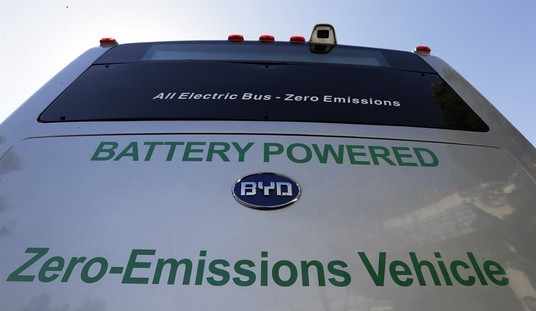In thinking further on my earlier post, I want to clarify why many practicing Catholics cannot accept Douglas Kmiec’s strange rationalization for voting in support of a pro-abortion candidate. I’ll try to move this away from a specific issue with the current presidential candidates, which is why I’m writing this as a separate post.
Kmiec offers a formulation used often by Catholics when voting for such candidates:
Douglas W. Kmiec, a conservative Catholic legal scholar at Pepperdine School of Law, said that although the formal teachings of the American Catholic bishops put primacy on the sanctity of life, including fetuses and embryos, doctrine allows for voting on other grounds, including the Iraq war, which the Vatican has opposed from the start.
Mr. Kmiec, a Republican who served in the Justice Department under President Ronald Reagan, said he was supporting Mr. Obama because his platform met the standard of justice and concern for the poor the church has always defended. This year, Mr. Kmiec was denied communion by a priest at a gathering of Catholic business people because of his support for Mr. Obama. Mr. Kmiec said, “The proper question for Catholics to ask is not ‘Can I vote for him?’ but ‘Why shouldn’t I vote for the candidate who feels more passionately and speaks more credibly about economic fairness for the average family, who will be a true steward of the environment, and who will treat the immigrant family with respect?’ ”
Issues of cconomic fairness do appear in the Catholic catechism, although only in general terms. The teachings do not prescribe a certainty of policy as Catholic or un-Catholic. Paragraphs 1938, 1941, and 1947 emphasize the need for action by Catholics to reduce sinful inequalities between the rich and the poor, but generally casts this in rather stark terms, with little resemblance to the quality of life of those deemed poor in the US:
- 43% of the poor own their homes, and the average home is a three-bedroom house with a garage and 1.5 bathrooms
- Over two-thirds of households have two rooms per occupant, which belies the notion of overcrowding
- 80% of the poor have air conditioning
- Almost 75% own one car; 31% own two or more
- The average living space for the American poor is larger than the average space for all people in Paris, Vienna, and London, among other cities in Europe
Furthermore, the catechism talks mostly about personal work to resolve sinful inequalities, not the establishment of a government mandate that operates under a redistributionist policy. It doesn’t forbid it, either, and that’s really the point. Both parties want to help Americans live well, but have different philosophies on how to get there. Voters in general should support the candidate who best represents their own approach to these issues, but that has nothing to do with Catholicism.
Neither does the Iraq war. While the Vatican disagreed with it, war itself does not violate Catholic doctrine (para 2309). The catechism does explicitly call “indiscriminate destruction of whole cities or vast areas” a violation of doctrine, but the US has not engaged in that kind of warfare in decades, and not ever without substantial provocation (para 2314). Nor is it even applicable in this context, since the war in Iraq is over, and both candidates support an expansion of the war in Afghanistan. Once again, voters have to rely on something other than Catholic teachings to cast their vote.
However, as I pointed out earlier, the doctrine on abortion leaves no room for such subjective application of other values. Paragraph 2271 plainly casts “every procured abortion” as a “moral evil”, and reinforces that by stating plainly that this teaching is irrevocable. Paragraph 2272 calls “formal cooperation” in abortion a “grave offense”, meaning a mortal sin. Why? Here, science and faith intersect. Scientifically, an embryo has life at the moment when the cells divide, if not a few minutes earlier at conception. Further, the embryo is innately human, with unique DNA specific to humans — and is therefore human life, regardless of its level of convenience to the mother. Catholicism teaches that human life, especially innocent human life, is sacred and “must be defended in its integrity, cared for, and healed, as far as possible, like any other human being.”
Anyone who formally cooperates in abortion, therefore, sins, and cannot honestly receive the Eucharist until they repent. That conclusion is inescapable from the catechism in paragraphs 2271, 2272, and 2274, and explicit in 2322:
From its conception, the child has the right to life. Direct abortion, that is, abortion willed as an end or as a means, is a “criminal” practice (GS 27 § 3), gravely contrary to the moral law. The Church imposes the canonical penalty of excommunication for this crime against human life.
Regardless of how Catholics feel about economic “fairness” or the Iraq war, that trumps all else for observant Catholics. Formal cooperation with abortion means excommunication, which indicates just how foundational this issue is for the Church and its members.
Many Catholics maneuver around this by simply ignoring it, and they’re free to do so. Membership in the Church is voluntary, after all, and people can leave the Catholic Church if they disagree with its catechism (and strictly speaking, they should do so under those circumstances). However, it’s either a gross misrepresentation or self-delusion to argue that abortion is simply one issue among many for observant Catholics and that economic policy or foreign affairs can outweigh it.
Update: The Anchoress wrote a column on this topic last month that is well worth the read.








Join the conversation as a VIP Member